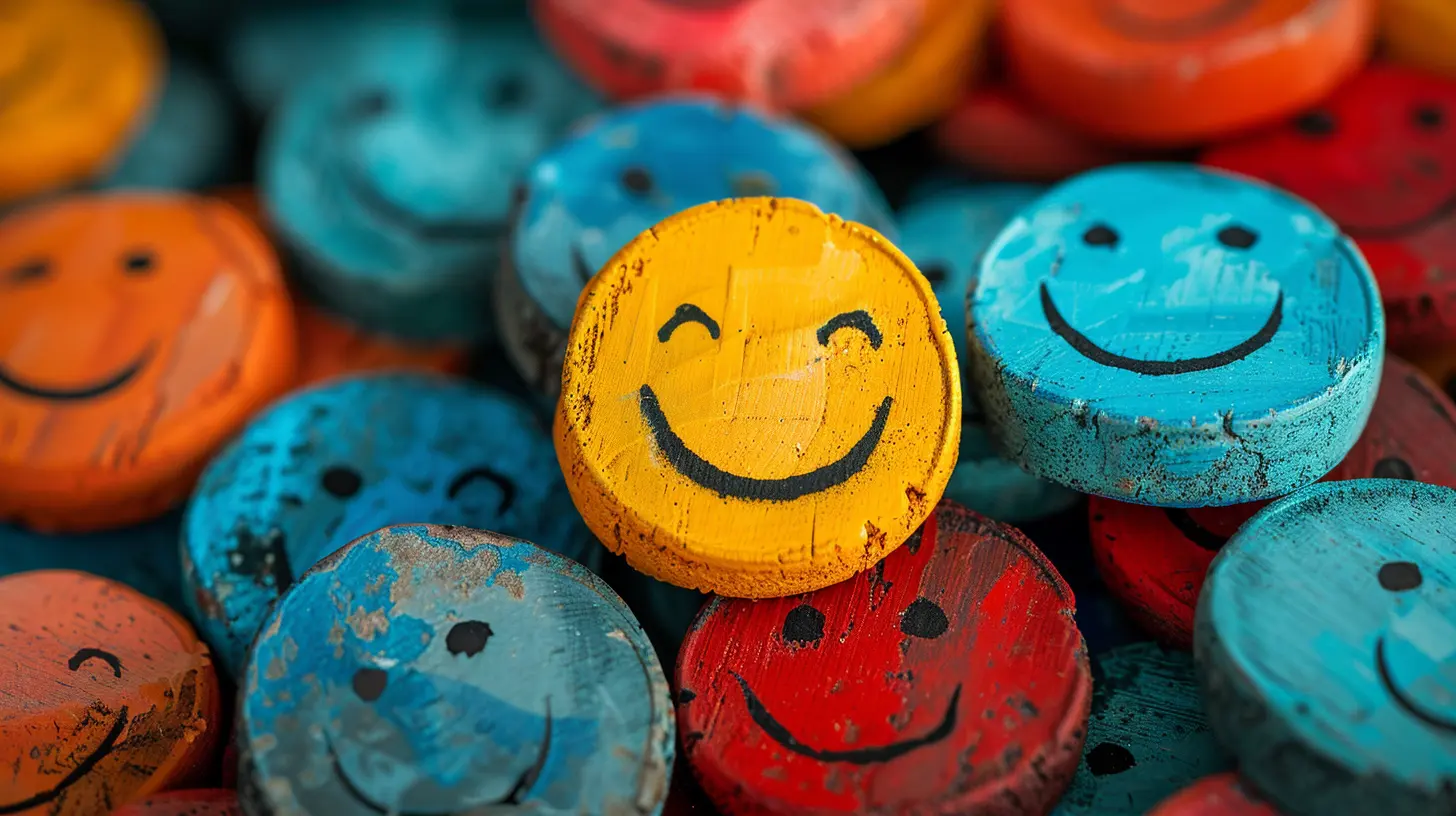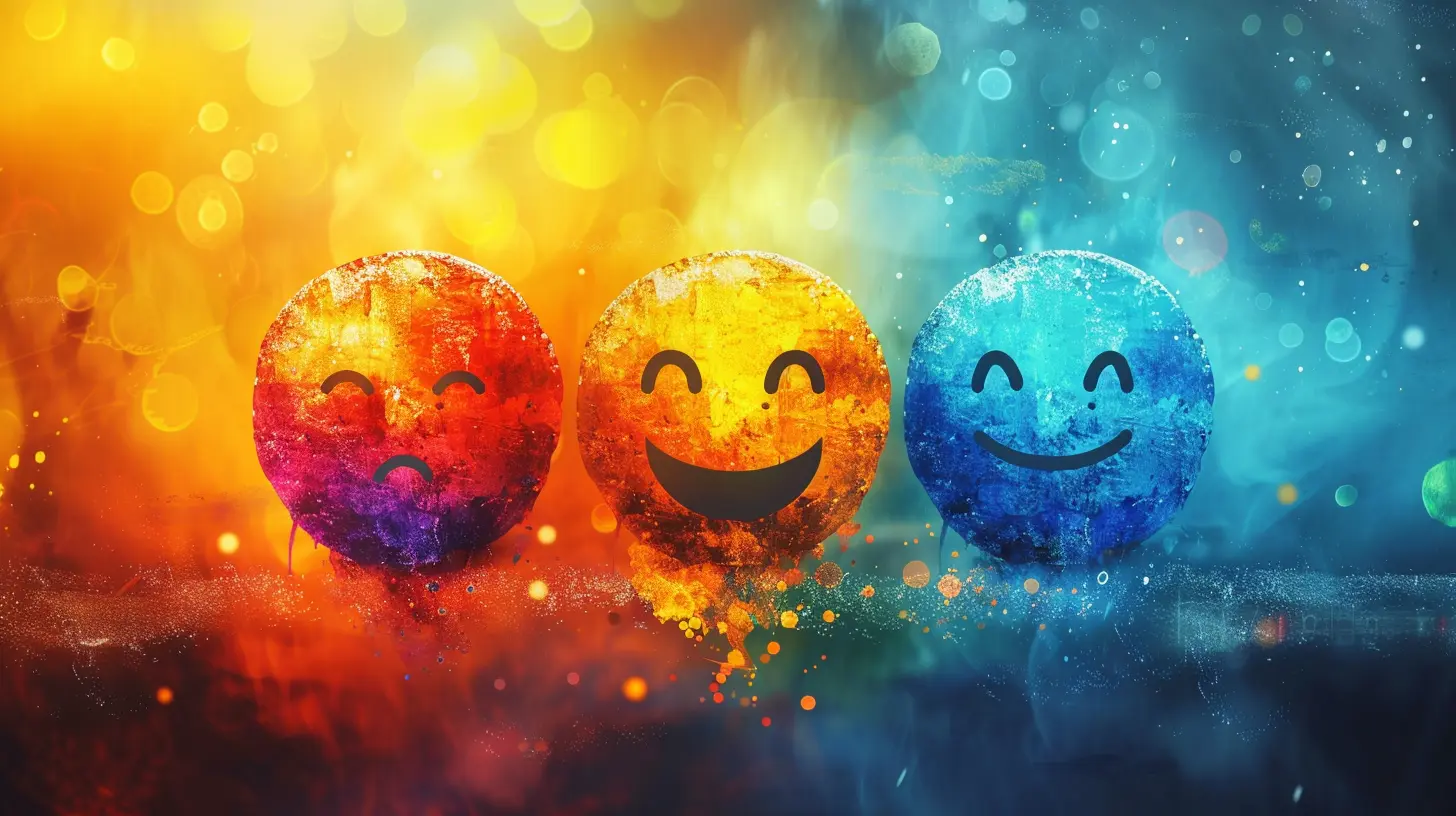The Role of Positive Emotions in Mental Health
26 July 2025
When we talk about mental health, we often get lost in the conversation about depression, anxiety, and other heavy topics—all of which are undeniably important. But what if we flipped the script for a moment? What if we focused on the bright side? Yes, I’m talking about positive emotions. Joy. Gratitude. Hope. Love. Those beautiful feelings that make us smile without realizing it.
Positive emotions do more than just feel good in the moment. They're powerful forces that support, strengthen, and even reshape our mental health. So, let’s dive deep into how embracing these uplifting emotions can actually transform your well-being, one small moment at a time.
Why We Tend to Overlook Positive Emotions
Let’s be real—positive emotions often don’t get the spotlight they deserve. Think about it. When was the last time someone asked you how much joy you experienced this week? Probably never.Most of us are conditioned to focus on fixing what’s "wrong." It’s especially true in mental health care where the focus is often about reducing symptoms, not increasing positive emotions. But what if building up positive feelings is just as important as silencing the negative ones?
Here’s the deal: positive emotions may seem small or “fluffy,” but they’re scientifically proven to be powerful tools for building resilience, boosting psychological well-being, and even improving physical health.
The Science Behind Positive Emotions
Okay, let’s nerd out a little—but stay with me!Positive emotions activate different parts of your brain than negative emotions. When you feel joy or gratitude, for example, your brain releases a cocktail of feel-good chemicals like dopamine and serotonin. These neurotransmitters not only lift your mood, but they also help regulate your sleep, appetite, and focus.
Enter Barbara Fredrickson, a renowned psychologist who developed the “Broaden-and-Build Theory.” The idea is simple but profound: Positive emotions broaden your awareness and encourage novel, varied, and exploratory thoughts and actions. Over time, this builds personal resources—like social connections, coping skills, and mental toughness.
In plain English? When you're feeling good, you're more open to the world, better at solving problems, and more capable of bouncing back from tough times.
The Domino Effect of One Good Vibe
Ever noticed how starting your day in a good mood makes everything feel a bit easier? That’s no accident.Positive emotions have a ripple—or domino—effect. A small act of kindness that makes you feel warm inside can inspire you to be more patient, more generous, and more connected to people around you. That, in turn, can improve your relationships, which reinforces your sense of support and belonging—big wins for mental health.
Even something as simple as laughing at a meme can lift your spirits just enough to face the rest of your day with a bit more pep. Positive emotions aren’t just fleeting moments; they're building blocks for a healthier, more resilient mind.
The Emotional Immune System
Think of positive emotions as your emotional immune system. Just like your body fights off illness with antibodies, your mind uses positive feelings to protect itself from stress and despair.Studies have shown that people who frequently experience positive emotions recover from stress faster. It’s not that they don’t feel stress—it’s that they’re better equipped to handle it. They have a mental 'first aid kit' stocked with optimism, gratitude, and hope.
So the next time life throws you a curveball (and you know it will), those positive vibes you've been cultivating could actually buffer the blow.
How Positive Emotions Counteract Negativity
We all have bad days. Sometimes, they stretch into weeks or even months. The power of positive emotions lies in their ability to undo the harmful effects of negative ones.Feeling anxious? A moment of calm or kindness can help slow your racing thoughts. Battling anger? A heartwarming video or a good chat with a friend can ease the tension.
This isn’t about denying or suppressing negative emotions—those are valid and necessary too. But injecting moments of positivity can reduce their intensity and prevent them from taking over.
Think of it like this: darkness doesn't go away just by focusing on it—you have to turn on the light.
The Long-Term Benefits: It's More Than Just Mood
Let’s dig even deeper—because the impact of positive emotions goes far beyond a simple mood boost. Here are a few long-term mental health benefits that might surprise you:1. Improved Resilience
People who experience more positive emotions are better able to bounce back from hardships. They’re like emotional rubber bands: flexible, but not easy to break.2. Enhanced Emotional Intelligence
Regularly engaging in positive feelings helps you become more in tune with your own emotions and those of others. That makes for stronger relationships and smarter decision-making.3. Lower Rates of Depression and Anxiety
No, positive vibes won't cure clinical conditions. But they can work as protective factors, reducing the risk and severity of symptoms over time.4. Increased Life Satisfaction
When you're regularly tapping into joy, gratitude, or love, you naturally feel more content with life. It’s not about being rich or problem-free—it’s about seeing what’s good, even when life isn't perfect.How to Cultivate Positive Emotions in Everyday Life
Now, here’s the fun part. You don’t need to win the lottery or go on a yoga retreat in Bali to feel better. Simple, intentional actions can do wonders. Try incorporating these into your daily routine:✅ Practice Gratitude
Take a few minutes each day to jot down three things you're thankful for. Bonus points if you text someone to tell them how much you appreciate them.✅ Savor Small Moments
Slow down and actually taste your coffee. Feel the sun on your skin. Listen to your favorite song—not just as background noise, but really listen.✅ Connect with Others
Spend quality time with people who lift you up. If you're short on time for deep convos, even a quick check-in text can spark connection.✅ Move Your Body
Dance around your room, jog in the park, or do a few stretches. Physical movement releases endorphins, which naturally boost your mood.✅ Do Random Acts of Kindness
Hold the door open, pay for someone’s coffee, or leave a kind note. Generosity fires up positive emotions not just for others, but for you too.✅ Laugh—A Lot
Watch something funny. Share memes. Remember a hilarious moment with a friend. Laughter is literally medicine for your mind.Warning: Positivity Isn’t About Always Being Happy
Alright, let’s clear something up. We’re not saying you should slap on a fake smile and pretend everything is fine when it isn’t. That’s toxic positivity, and it’s a whole other problem.The goal isn’t to feel great all the time. That’s just not realistic—or healthy. Life is messy, emotional, and unpredictable. Positive emotions aren’t about ignoring the bad stuff. They’re about balancing the emotional scales.
Think of mental health like a bank account. Negative experiences are withdrawals; positive ones are deposits. You can’t stop the withdrawals, but you can make enough deposits to keep your emotional balance healthy.
Final Thoughts: Small Positives, Big Impact
So here’s what it all boils down to: positive emotions matter—a lot. They’re not just feel-good extras or fluffy bonuses. They’re essential ingredients in the recipe for better mental health.Whether it’s a moment of awe staring at a sunset, a belly laugh with a friend, or a small act of kindness, these experiences build us up. They help us manage stress, enhance our relationships, and create a life that feels worth waking up to.
No, they won’t make your problems disappear. But they will make you stronger, more resilient, and better equipped to handle whatever comes your way.
And that’s something worth smiling about, don't you think?
all images in this post were generated using AI tools
Category:
Positive PsychologyAuthor:

Nina Reilly
Discussion
rate this article
1 comments
Luna Reed
This article beautifully highlights the critical influence of positive emotions on mental health. By fostering joy, gratitude, and hope, we can enhance resilience and overall well-being. Embracing these emotions not only boosts our mental state but also strengthens our connections with others, promoting a healthier, happier life.
August 8, 2025 at 3:27 PM

Nina Reilly
Thank you for your insightful comment! I'm glad you found the article impactful in highlighting the importance of positive emotions for mental health and well-being.


